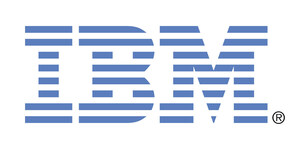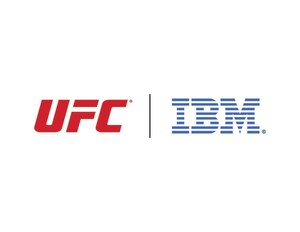BOSTON, March 13, 2013 /PRNewswire/ -- IBM (NYSE: IBM) today announced multiple Smarter Planet projects with the City of Boston, Commonwealth of Massachusetts and Boston University aimed at exploring new solutions to long-standing urban challenges.
(Photo: http://photos.prnewswire.com/prnh/20130313/NY76092-INFO )
(Logo: http://photos.prnewswire.com/prnh/20090416/IBMLOGO )
These ambitious projects, discussed at an event hosted by the partners titled "Smarter Cities: A Roadmap for the Future," focus on using new technology to increase energy efficiency, enhance coordination of major events, reduce traffic congestion and improve the maintenance of the streetscape. Across all of these initiatives, the partners plan to collaborate on the implementation and evaluation of this work.
"Boston has always been a smart city," said Boston Mayor Thomas M. Menino. "These partnerships and projects, however, are the newest step in our exploration to better address long-standing interests of our residents, such as improving traffic and greening our city."
These pilots leverage the latest IBM technology and will combine high volumes of data from sensors and databases with a layer of analytics software. This infrastructure will allow officials to better visualize and manage operations. The city and state projects include:
Building a Smarter Boston Across Municipal Operations
Well run events – from a block party to the Boston marathon – bring life to the City streets. To improve the coordination and management of events, Boston's Mayor's Office of Arts, Tourism and Special Events will pilot an intelligent dashboard from IBM. This dashboard will help provide City officials, across all departments, with a common view of events across the City, which could allow everything from improved traffic management to better public safety support. The dashboard helps officials spot potential conflicts in the booking of events before they happen.
Boston maintains over 60,000 street lights, keeping residential streets and main thoroughfares appropriately lit. At any given time, roughly three percent of these lights are out, with their bulbs needing to be replaced or wiring needing to be fixed. Leveraging the IBM Maximo solution, Boston's Public Works Department is piloting a new asset management platform to support street light operations. With its predictive analytics capabilities, this platform will help better coordinate the repair and routine maintenance of this important infrastructure. Based on the success of this pilot, the City of Boston may extend the asset management system to support additional operations in the City.
Supported by an IBM Smarter Cities Challenge grant in 2012, the City of Boston, Boston University and IBM drafted a detailed set of recommendations about unlocking and analyzing transportation data in Boston. Those recommendations can be found here. This work is expected to continue in 2013 with a series of data-oriented projects. To hear Bill Oates, CIO of the City of Boston discuss the importance of public private partnerships like the Smarter Cities Challenge visit: http://www.youtube.com/watch?v=QNiTI-Q6ehE
IBM has been working with Boston University's Sustainable Neighborhood Laboratory on a smarter neighborhoods project. With this project, preliminary data collection and analysis about energy consumption in residential buildings has identified opportunities for improved efficiency with targeted investment in the energy infrastructure. Other key community partners with the smarter neighborhood project include the City of Boston, the energy and utility company NSTAR, and community development organizations. Future goals for this work include engaging building residents and youth to create awareness, gain new insight about energy usage and behavior and to understand potential incentives for energy conservation that can benefit the whole community. To learn more about this project: https://www.youtube.com/watch?v=egYAALviXLQ
Building a Smarter Commonwealth
The Commonwealth of Massachusetts will work with IBM to improve the maintenance, energy consumption and space management across public sector buildings among the state's 72 million square feet of property. Buildings account for almost 40 percent of the nation's energy consumption in the U.S. By creating smarter buildings, the Commonwealth will be better positioned to meet federal mandates for efficiency (1).
The use of integrated workplace management software from IBM will help improve building maintenance while extending the life of buildings and reduce the more than 120,000 work orders the state receives each year. This effort will help the state improve funding and space management by providing a complete view of building use and the ability to quickly identify redundant or under-used properties.
"The Patrick-Murray Administration continues to think more innovatively to deliver cost-savings for the Commonwealth," said Division of Capital Asset Management and Maintenance Commissioner Carole Cornelison. "We will work with the private sector as well as our public sector partners to improve maintenance, energy and space management in order to make smarter infrastructure improvements that will lead to greater sustainability of state facilities."
The Massachusetts Port Authority (MassPort) has started a new project to provide predictive service and maintenance for Logan International Airport. IBM software is currently used for Terminal A of the airport, managing maintenance operations for all assets such as air conditioning systems, doors, escalators and other terminal equipment and machinery. MassPort plans to expand the use of software to all Terminals at Logan, and to other asset classes such as buses and other vehicles, and the new Consolidated Rental Car Facility set to open in the Fall.
In addition, there is an ongoing project with the Massachusetts Water Resources Authority (MWRA), which provides wholesale water and sewer services to 2.5 million people in 61 communities. IBM software provides the MWRA with predictive maintenance of its complex water and sewer system. Needing to reduce maintenance labor costs spent doing reactive work, the MWRA was able to decrease corrective maintenance and project work orders by 38 percent and significantly reduce work backlog. The software also helped them comply with environmental regulations by documenting maintenance processes.
Cities everywhere face shrinking budgets, aging infrastructure and pressure to improve the delivery of services to citizens. As cities respond to these challenges, the influence of the Chief Information Officer (CIO) is expanding to help governments make more informed decisions that will help the city emerge stronger, better positioned to create jobs and spur economic competitiveness. These communities are using technology to improve their existing infrastructures and building more sustainable cities. As part of its Smarter Cities initiative, IBM is working with thousands of cities around the world to solve some of their toughest challenges to improve the daily lives of residents.
For more information on the software being used by MassPort and the Massachusetts Water Resources Authority visit: http://www-01.ibm.com/software/tivoli/products/maximo-asset-mgmt/
To learn about how a Smarter City works: http://www.youtube.com/embed/tfWGrbk6HSA
For more information on IBM Smarter Cities, visit www.ibm.com/press/smartercities.
1. "Leading By Example-Clean Energy" and "Efficient Buildings Program" (Executive Order 484).
Media Contact(s)
Kara Yi
415-871-6321
IBM Media Relations
[email protected]
Erica Topolski
617-693-2816
IBM Media Relations
[email protected]
SOURCE IBM
WANT YOUR COMPANY'S NEWS FEATURED ON PRNEWSWIRE.COM?
Newsrooms &
Influencers
Digital Media
Outlets
Journalists
Opted In





Share this article